Tokyo

Angélus by floc’h
in Tokyo
Ritz-Carlton Tokyo
A stay at this downtown Tokyo hotel begins on the 45th level of Midtown Tower, one of the city’s tallest buildings. Floor-to-ceiling windows perfectly frame the skyline, from Tokyo bay area to National Stadium to Mount Fuji. As guests settle in, they discover luxury amenities as impressive as the view over Tokyo, Japan: seven incredible restaurants, Club Level accommodations, a floor dedicated to health and wellness and reimagined meeting spaces.
—
MIDTOWN, 9-7-1 MINATO-KU, AKASAKA, TOKYO, 107-6245
www.ritzcarlton.com
Palace Hotel Tokyo
With an incomparable view over the city and a unique, moat-side setting just opposite the Imperial Palace gardens, the Palace Hotel Tokyo is a haven of hospitality – serene, refined and imbued with understated luxury. Paying homage to a legacy that goes back over half a century, this completely reimagined modern masterpiece is a sophisticated celebration of its country’s culture and a tribute to Omotenashi – Japanese hospitality.
—
1-1-1 Marunouchi, Chiyoda-ku,
Tokyo 100-0005
palacehoteltokyo.com
ANA InterContinental
ANA InterContinental mirrors the rich diversity of Tokyo. The dynamic buzz of the lobby calls to mind some of the city’s famous street scenes and the hotel’s exceptional food experiences reflects its world-class dining reputation. It is also a place where to relax thanks to the many local temples and shrines located in the close neighborhood.
—
1-12-33, Akasaka, Minato-ku,
Tokyo 107-0052
anaintercontinental-tokyo.jp
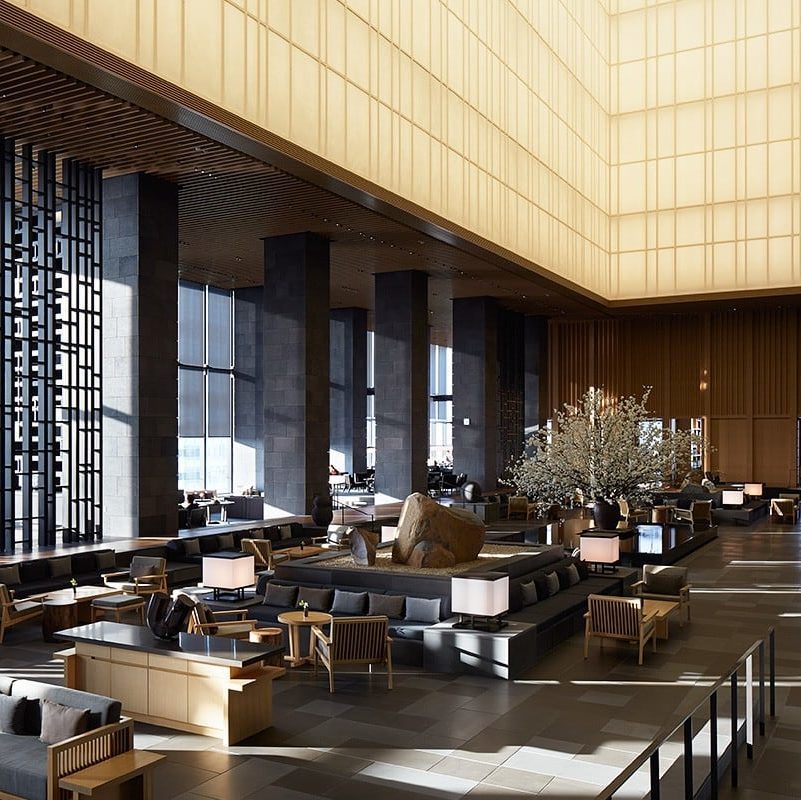
Aman Tokyo
Atop a soaring tower just a few steps from Tokyo train station, the Aman Tokyo Hotel, which opened in 2016, is a quiet and opulent island in the sky. Perhaps more than any other luxury hotel in Tokyo, the Aman mirrors Japanese design and sensitivity. Both common areas and guest rooms are clean and uncluttered, which is welcome after spending all day walking among the crowded and busy chaos that is Tokyo.
—
The Otemachi Tower, 1-5-6 Ote-machi, Chiyoda-ku,
Tokyo, 100-0004
www.aman.com
L’Effervescence
The Effervescence in Omotesando, Tokyo, is a French two-star Michelin restaurant opened by the chef Shinobu Namae. Showcasing his creativity, chef Namae combines the art of French cuisine with the best of Japanese ingredients. In order to sublimate the ingredients’ original flavor, he often brings into play a wide variety of cooking styles. L’Effervescence offers a setting where people can gather and relax in a positive environment, enjoying a true culinary experience.
—
2 Chome-26-4 Nishiazabu, Minato,
Tokyo 106-0031
www.leffervescence.jp
Azure 45
Led by chef Shintaro Miyazaki, Azure 45 offers a modern French cuisine in an upscale and creative fine-dining setting. Its name “Azure” comes from the view of the beautiful skyline and the Tokyo Bay from the window of the restaurant. Among the distinctive ingredients used by chef Miyazaki for his creative dishes, you can find fresh catches sourced from Yamaguchi’s Hagi market and Hokkaido.
—
Midtown, 9-7-1 Minato-ku, Akasaka,
Tokyo, 107-6245
www.ritzcarlton.com
Signature
Your heart skips a beat as you enter this French fine-dining restaurant with a breathtaking view. Under the watchful eye of the talented executive sous-chef Nicolas Boujéma, Signature’s enticing menu offers an array of authentic French dishes, subtly prepared with a distinctive contemporary flair. Dining areas are divided by silver partitions fashioned from carbon fibers, so the sunlight bathes the dining room by day, while at night the glittering city skyline provides the ultimate backdrop for this unforgettable dining experience.
—
2-1-1 Nihonbashi Muromachi,
Chuo-ku, Tokyo
www.mandarinoriental.fr
L’Anneau d’Or
Chef Tanigawa Yasunobu, who trained in Paris and Switzerland, runs this elegant restaurant with his wife and cooks every dish himself. Specialties include soft-steamed egg in a cocotte with a truffle and foie gras sauce, Lacan pigeon with a light salmis sauce, and roasted Challans pigeon served with a Rouennaise sauce. The wine selection is very impressive with precious bottles and rare vintages from all regions of France.
—
4 Chome−6−1, Yotsuya,
Shinjuku, Tokyo
www.lanneaudor-tokyo.com
Beige
Beige Tokyo was found in 2004 through the collaboration between the fashion brand Chanel and Alain Ducasse. The spirit of ‘simple and elegant’ is expressed in every detail of the cuisine and the decor. Indeed, Beige offers a refined French cuisine that makes the fullest possible use the finest Japanese ingredients: subtle, elegant and inspiring.
—
Chanel Ginza Building 10F, 3-5-3 Ginza,
Chuo-ku, Tokyo
www.beige-tokyo.com
Joël Robuchon Restaurant
In the neighbourhood of Ebisu stands a French Château fully dedicated to Joël Robuchon culinary art. Decorated with beige and champagne-coloured interior, mirrors and crystals, the restaurant proposes a menu covering Joël Robuchon’s greatest classics, elaborated with the best products of the moment. An exceptional cuisine for an exceptional place, right in the heart of Tokyo.
—
Yebisu Garden Place, Mita 1−13−1 Meguro-ku,
Tokyo
www.robuchon.jp
Pachon
The Montpellier-born chef, André Pachon, has run the upscale French restaurant Pachon in Daikanyama, Tokyo for almost 30 years. He is one of the pioneers who introduced authentic French cuisine to Japan. Restaurant Pachon is appreciated by locals for its fine French cuisine and traditional dishes like the now famous “Cassoulet de Castelnaudary”. The great ambiance, the excellent wine list and the culinary savoir-faire guarantee a unique experience in Tokyo.
—
29−1 Sarugakucho, Shibuya,
150-0033 Tokyo
www.pachon.co.jp
Tokoshima
Chef Tokoshima serves 20 different items of grilled chicken, from the standard – breast, wings, thigh – to the startling. Chef Tokoshima is a perfectionist who oversees the minutiae of the yakitori process. The simple seasoning – salt, black pepper and a splash of soy sauce – allows the natural flavours of the chicken to shine. It’s a beautiful, elegant restaurant, with a counter surrounding the kitchen, offering customers a close-up view of the master’s meticulous preparation of each and every kushi.
—
Luna Park Sangenjaya 105, 2-8-10 Sangenjaya,
Tokyo
https://ameblo.jp
Sushi Mitani
Sushi Mitani is an exquisite restaurant where you can have a truly sensational gourmet journey. Chef Mitani specializes in offering a tasty seasonal variety, inspired by the traditional Edo cuisine with a touch of modern creativity. In addition, the restaurant’s sommelier will help you select the best sake or wine out of an impressive selection to complete your experience with style. Enjoy a true culinary bliss at this high-end sushi restaurant.
—
1-2 Kioi terrace 3F, Kioi-cho, Chiyoda-ku, Tokyo
sushi-mitani.jp
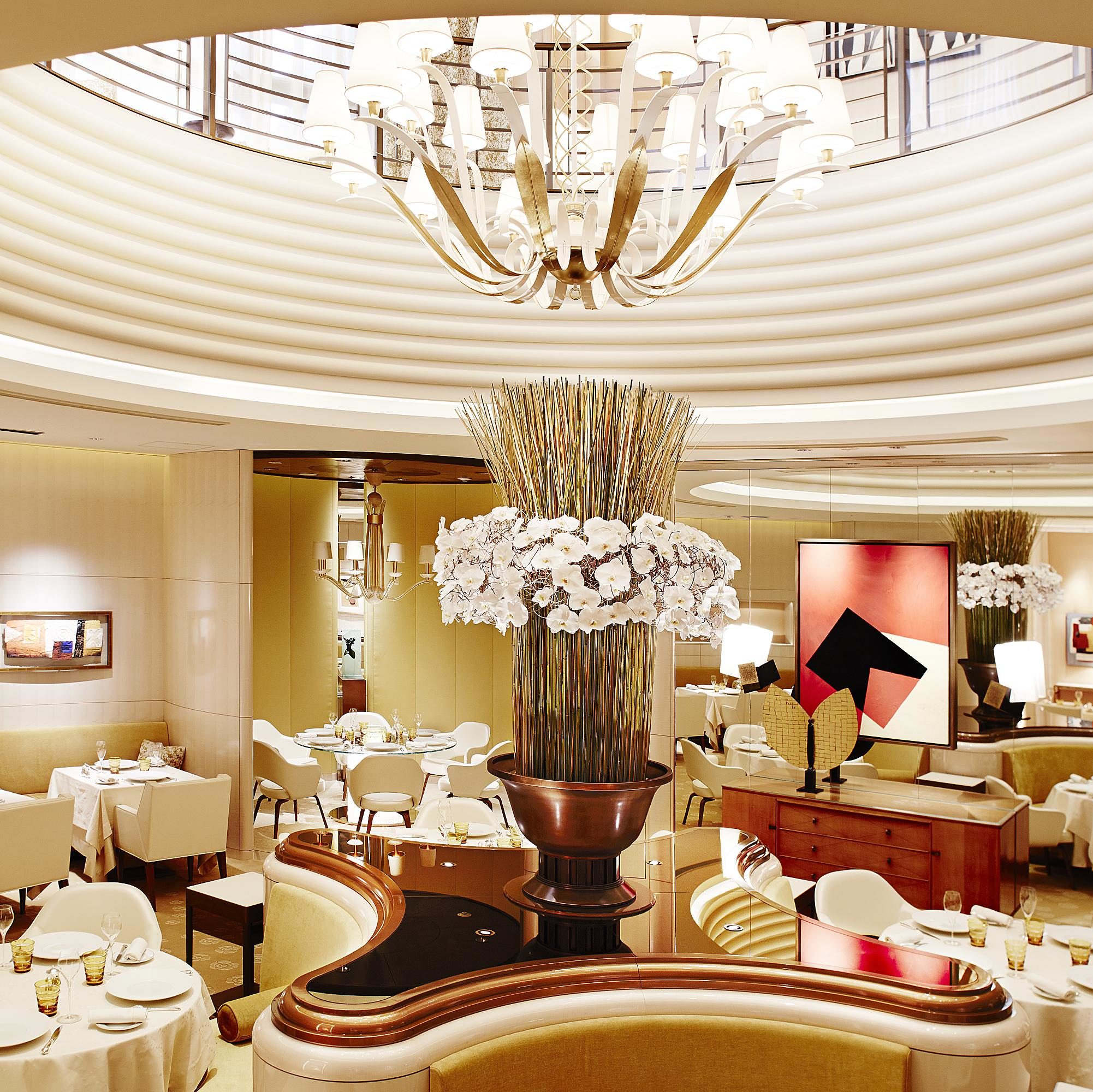
L’Osier
L’Osier is a French restaurant which was established in Ginza, Tokyo in 1973. Its superb decor was imagined by Pierre-Yves Rochon, a designer who is world-renowned for his luxurious creations. L’Osier’s traditions are carefully preserved by new executive chef Olivier Chaignon and his team as he seeks to further enhance the restaurant’s outstanding hospitality.
—
7-5-5 Ginza, Chuo-ku,
Tokyo 104-0061
losier.shiseido.co.jp
Oriental Lounge
Lying just off the main lobby on the 38th floor, the Oriental Lounge is the nucleus of the hotel Mandarin. Meet friends or spend time on your own while enjoying the stunning city views. In the evening, they dim the lights and the sound of five music fills the staircase from the dining floor below. Candles warm up the mood whilst the spectacular city lights glitter on the floor from the ceiling glass windows.
—
38F, 2-1-1 Nihonbashi-Muromachi,
Chuo-ku, Tokyo
www.mandarinoriental.com
Gen Yamamoto
Gen Yamamoto offers an omakase cocktail tasting menu which is created from carefully selected and seasonal local fresh produce and fine liquors. The omakase cocktail tasting menu reflects “Shiki”, Japanese seasonality.
—
1-6-4 AZABU-JUBAN, MINATO-KU, TOKYO 106-0045
genyamamoto.jp
Crescent
The Crescent is situated in an attractive Victorian-style building built in 1947 in the Minato quarter of Tokyo. The restaurant itself has been operating since 1968. The dining room has a lounge where to enjoy a drink before eating as well as an attractive view over the trees of the adjacent Shiba Park. Head chef Isogai Takashi comes from Niigata and graduated from the Tsuji Culinary School before working in restaurants in Tokyo and Fukuoka. Over a period of eleven years, he also worked for prestigious restaurants in Europe. Since 1997, he has been the head chef of the Crescent, which has held two stars in the Michelin guide since 2009.
—
1-8-20 Shibakoen, Minato-ku,
105-0011 Tokyo
www.restaurantcrescent.com
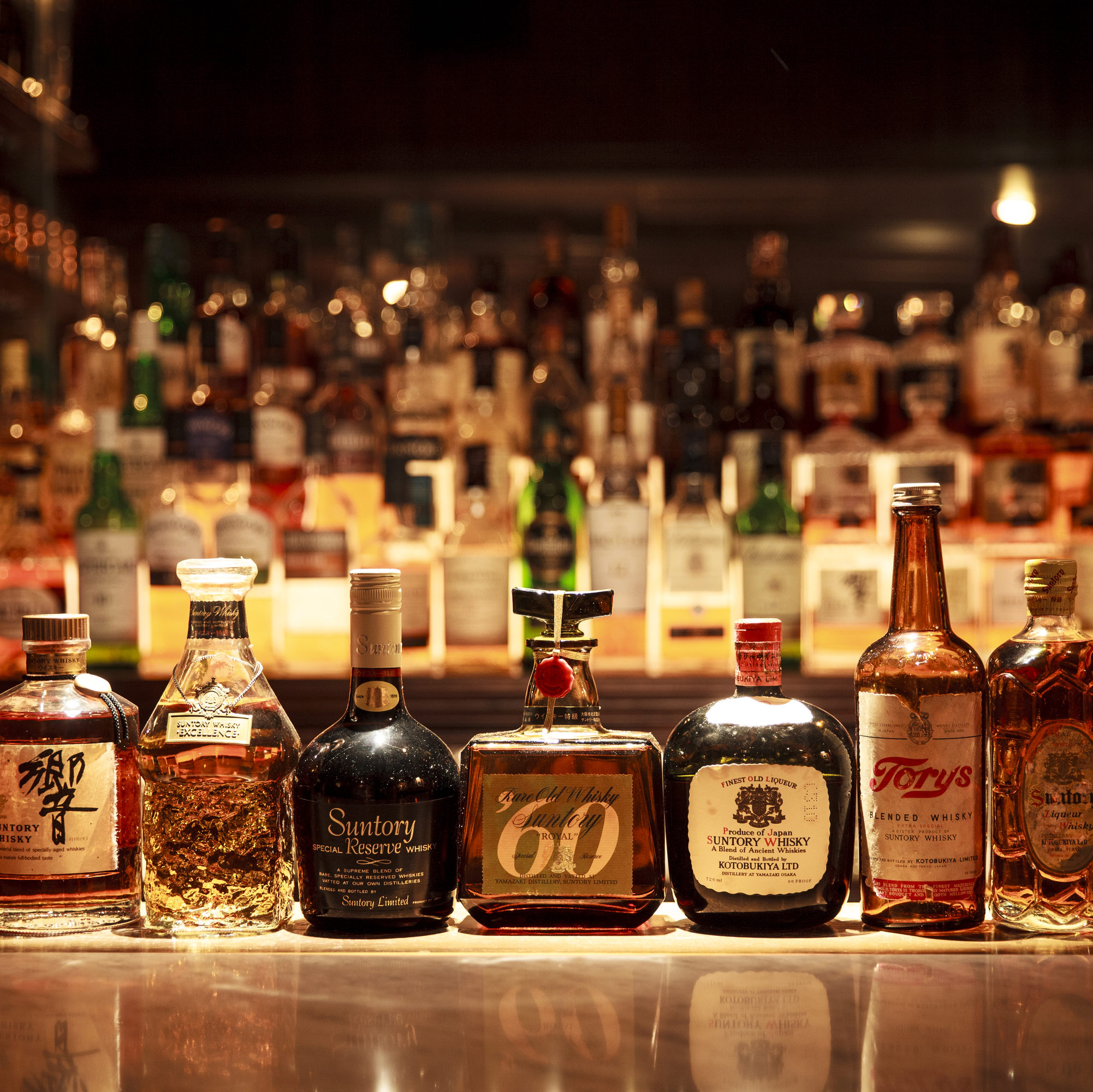
Apollo
Named after Harlem’s Apollo Theater, this Ginza bar serves a respectable selection of Japanese whiskies. Sit at the right end of the counter and look out for the collection of vintage bottles.
—
B1F, 8-2-15 Ginza, Chuo-ku,
Tokyo
Wine Shop Sommelier
Wine Shop Sommelier is a wine boutique featuring wines directly imported from the producers, allowing them to offer the highest quality wines at the most reasonable prices in Japan. Their specialists visit France, Italy, Chile, Spain and other countries and handpick the very best wines to bring them back to Japan.
—
6 Chome−1−12, Roppongi Minato,
Tokyo
www.wsommelier.com
Akasaka Yomo
Going strong since 1624, Yomo offers a very nice selection of sake and shochu on the first floor and an impressive collection of mainly French wines down in the basement.
—
3-12-21 Akasaka,
Tokyo
http://yomo-akasaka.com
Takashimaya
Takashimaya is a high-end department stores chain found throughout Japan, with many of them concentrated in Tokyo. Takashimaya welcomes a large number of customers every day in a dream-like decoration and elegant design, providing with the most refined shops in town. The department store launched its business at the end of the Edo Period and has built a strong reputation revolving around the quality of its products and services. With an average of 15 floors, all dedicated to specific lifestyles, Takashimaya is also renowned for its furnished and refined wine section which includes world famous Grands Crus as well as Japanese spirits.
—
Sendagaya 5-24, Shibuya-ku,
151-0051, Tokyo
www.takashimaya.co.jp
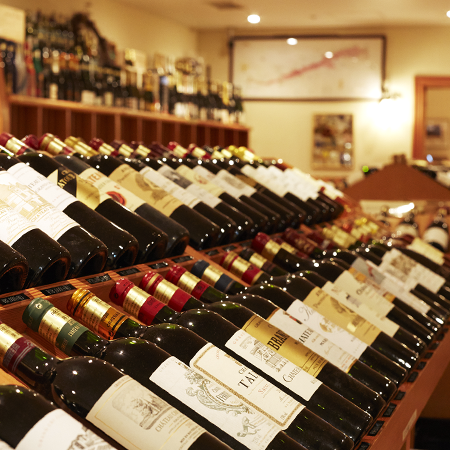
La Vinée
La Vinée is Tokyo’s most famous French fine wines shop. Situated in the upscale Ebisu Garden Place, La Vinée certainly owns the widest collection of French Grands Crus in the city. Destined to connoisseurs looking for hidden gems, the shop provides with rare vintages of prestigious winemakers, available in different format from standard bottle to Jeroboam and more.
—
4-20-7 Ebisu Garden Place, Shibuya,
150-0013 Tokyo.
www.lavinee.jp
Tokyo Metropolitan Art Museum
Founded back in 1926, this museum is Japan’s very first public art museum. It features a variety of special exhibitions, thematic showcases and art masterpieces from around the world. The building is designed by renowed Japanese architect Kunio Maekawa, and is an absolute highlight for those who appreciate design. The Museum aspires to be a “doorway to art,” open to all people for compelling art experiences—a place where children can visit, and budding artists can debut their works, without hesitation. The Museum strives to be “a haven for enrichment of the heart.”
—
8-36 Ueno Koen, Taito-ku,
Tokyo
www.tobikan.jp
Ryogoku Kokugikan
Also known as Ryōgoku Sumo Hall, Ryogoku Kokugikan is an indoor sporting arena located in the Yokoami neighborhood of Sumida. Among the six official tournaments of sumo held in Japan every year, three of them take place at Rygoku. The national wrestling sport of sumo is characterized by the size of the wrestlers and by two simple traditional rules: it is forbidden to move out of the circle (dohyo) and participants cannot touch the floor with anything other than their feet. The male wrestlers, called “rikishi”, wear a simple loincloth fastened around the waist and groin area. This is called a “mawashi” and is the only thing they are allowed to grasp during the fight.
—
1-3-28, Yokoami, Sumida-ku,
Tokyo
www.sumo.or.jp
Senso-Ji Temple
This Buddhist temple is in Asakusa. It is one of Tokyo’s most colorful and popular temples. Legend has it that in the year 628, two brothers fished a statue of Kannon, the goddess of mercy, out of the Sumida River. Even though they kept putting the statue back into the river, it always returned to them. Consequently, they built Sensoji nearby for the goddess Kannon. The temple was completed in 645, making it Tokyo’s oldest temple.
—
2 Chome-3-1 Asakusa, Taitō,
Tokyo 111-0032
www.japan-guide.com
Tsukiji Outer Market
Tsukiji is the world’s largest and busiest fish market. The main reason for going there at 5 a.m. is to catch the live tuna auctions. Alongside the sushi counters and ramen shops you will find retail stores selling anything from fresh seafood and katsuobushi (bonito flakes) to traditional knives and ceramics. An essential pilgrimage for anyone with an interest in Japanese food culture or in search of affordable eating options.
—
5-2 Tsukiji, Chuo-ku, Tokyo
www.japan-guide.com
Shinjuku Gyoen National Garden
The Shinjuku Gyoen National Garden is the most beautiful green space in Tokyo. In late March and early April, during the cherry blossom season, the central lawn areas are particularly stunning. Consider bringing a picnic lunch. You can buy a variety of take-away items at the gourmet food hall in the basement level of the Takashimaya department store.
—
11 Naito-cho, Shinjuku-ku,
Tokyo
www.japan-guide.com
Happoen Garden
Located near Meguro’s Metropolitan Art Museum, Happoen is a hidden haven of peace in the middle of busy Tokyo. Literally meaning “the garden with the eight sceneries”, one can only agree that Happoen pleases the eye, never matter at which hour of the day or season of the year. The pond is the perfect spot to enjoy a cup of traditional Matcha tea, prepared by the very keepers of the garden.
—
1-1-1 Shirokanedai, Minato-ku,
108-0071 Tokyo
www.happo-en.com
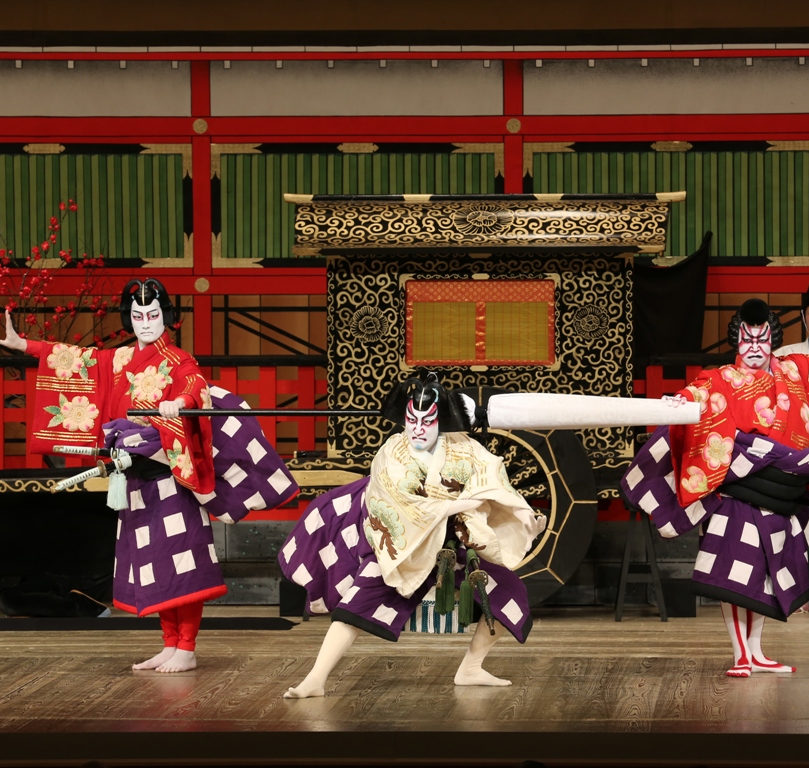
Kabukiza Theatre
This is the principal theater in Tokyo for the traditional kabuki drama form. For this popular and specific Japanese genre, actors wear dramatic make-up. Daily performances begin in the morning and end at night. Throughout the day, acts from famous plays are performed as well as danced scenes, and a full play is performed in the evening. It is possible to buy a ticket for one act or one dance if you do not wish to stay the entire day at the theater.
—
Ginza 4-12-15, Chuo-ku,
Tokyo
www.kabukiweb.net
Hottarakashi Onsen
The hot springs of Yamanashi offer much variety in terms of water temperature as well as mineral quality and diversity. Also, with springs situated at altitudes rising from 100m to 1400m above sea level, visitors can enjoy a range of different springs. This popular day spa looks down onto the Kofu Basin and out onto Mount Fuji. At night, visitors can enjoy night views and starry skies.
—
1669-18 Yatsubo, Yamanashi City
www.hottarakashi-onsen.com
Mount Fuji
Rising above the clouds and the symbol of Japan, Mount Fuji has provided a spiritual basis for the Japanese since ancient times. This 12,380 ft high, dormant volcano is world renowned for its symmetry and serenity. Located between Yamanashi and Shizuoka, Mount Fuji is the main attraction of the Fuji-Hakone-Izu National Park. Tranquility in winter, when it’s covered in snow, vitality and energy in summer, the seasonal changes glorify this national treasure. From near or far, from the plane or the train, one cannot contemplate Mount Fuji without being amazed by its beauty.
—
Yamanashi Prefecture
Budo-no-oka Winery
Yamanashi is known as the biggest producer of grapes in Japan, and Katsunuma, located to the east of town, is the central area for this fruit, which was introduced by the Buddhist monk Gyoki 1,200 years ago. Today, many vineyards are scattered around Katsunuma. Wine has been made here since the late 19th century, and about 80 wineries produce their own wines today. Budo-no-oka Winery is one of the flagship wineries of Koshu. It is located on a hill and is surrounded by vineyards. In addition to a wine cellar, a shop, and a restaurant, it also offers fully- equipped accommodation.
—
5093 Katsunuma-cho Hishiyama,
Koshu, Yamanashi
budounooka.com
Grape Festival
The Katsunuma Grape festival is an annual event that showcases the grape oriented produce from the region. With your glass you can taste the wines grape juices from 24 of the local wineries. The festival also features performances throughout the day which culminate in a spectacular, burning shrine gate on the mountain side with accompanying fireworks. Held on the first Sunday in October.
—
Katsunuma Central Park, Koshu,
409-1316 Yamanashi
Fuji Golf Course
The Fuji Golf Course was opened in 1935 and is one of Japan’s most
renowned traditional golf courses. At this resort course, which skillfully
utilizes the terrain at the foot of Mount Fuji, enjoy the views of
the mountain and the natural world stretching out before your eyes.
—
262-1 Yamanaka, Yamanakako-mura,
Minamitsuru-gun
www.fuji-gc.com
Markus
Markus is home to a fine array of Japanese objects of desire sourced from all across the country. The shop owner personally picks out everything in the shop and goes around the country to visit various craftspeople to learn about their unique products.
—
Musashino Country Heights #112, 2-18-15
Kichijoji-Honcho, Musashino-shi
http://marku-s.net
Ginza
Ginza is Tokyo’s most famous upmarket shopping, dining and entertainment district, featuring numerous department stores, boutiques, art galleries, restaurants, night clubs and cafes.
—
Ginza, Chūō-ku,
Tokyo 104-0061
Yohei fukuda
Yohei Fukuda is one of the most acclaimed Japanese bespoke shoes, boots and leather accessories makers for gentlemen today. Having formally trained in the craft and worked with several renowned British shoemakers, Mr. Fukuda initiated his private practice in 2008 following his return to Tokyo. His creations are offered in four lines, an order has to be placed in person in Tokyo.
—
Kitaaoyama 2-12-27, Minato-Ku, 107-0061, TOKYO
yoheifukuda.jp
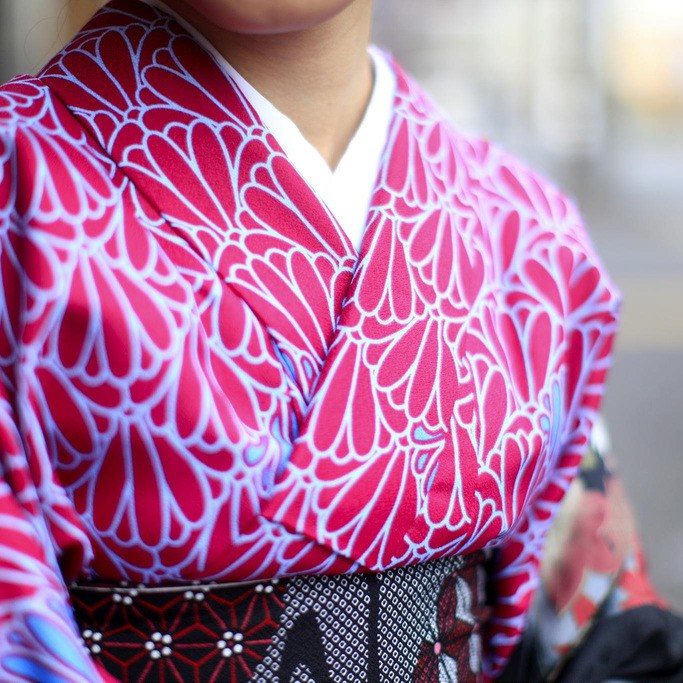
Daimaru’s Kimono and Yukata
Most departing visitors leave town from Tokyo Station and usually go shopping to the Daimaru department store next door. The kimono shop on the 10th floor is not full of tourists; it’s where Japanese ladies come to order custom-made ensembles. The samples on display will take your breath away. The shop also stocks a full range of accessories — obi, hair combs, toe socks, thong sandals, purses, fans — all nice to look at.
—
1-9-1 Marunouchi, Chiyoda-ku,
Tokyo
www.daimaru.co.jp
Antica Osteria Del Ponte
—
Chiyoda 2-4-1, Marunouchi Building 36F,
100-6336, Tokyo
Apicius
—
1-9-4 Yurakucho, Tokyo
La Rochelle
—
3-14-23 MinamiAoyama, Tokyo
Bouillon de Paris
—
Chuo, Ginza 3-13-11, Ginza Ashizawa Building 1F, Tokyo
Sugalabo
—
Azabudai 1 -11-10, Minato, Tokyo
Le temps
—
1-25-3 Jiyugaoka, Tokyo
Mitsukochi
—
1-4-1 Nihombashi, Tokyo
Bon Repas
—
1-11-1 Azabujuban, Tokyo
Vin sur Vin
—
1-7-6 Toranomon, Tokyo